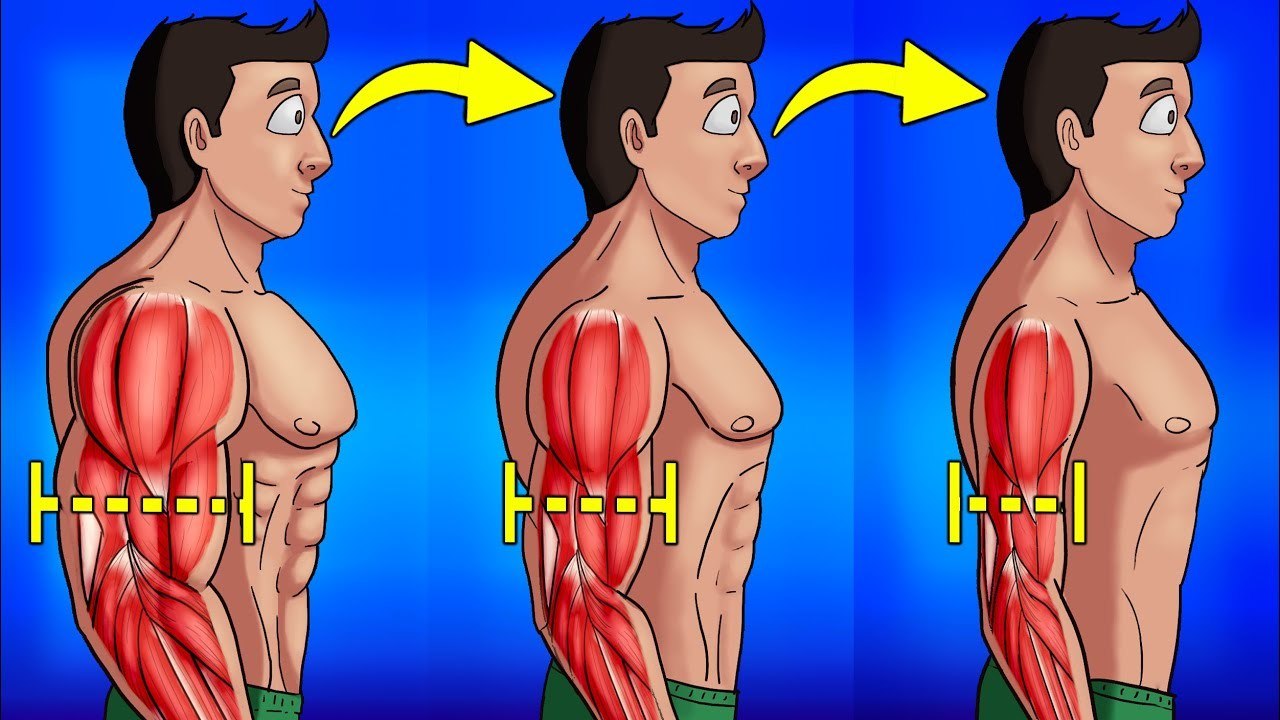- in Weight Loss
8 Reasons Your Muscles Are NOT Growing (Science-Based)

Find out exactly why your muscles are not growing. If you're not building muscle make sure that you're not making these common muscle building mistakes. If you want to ensure that your making preventing muscle loss & instead you'd like to gain muscle mass watch this video. You'll still grow muscle faster even if you're currently a skinny guy. As long as you eat the right foods to by following a solid bulking diet plan and your avoiding mistakes in the gym you will be in a great position for muscle growth.
🔥 FREE 6 Week Fat Loss Challenge:
💪 12 Week Lean Bulking Program:
📲 Diet/Workout Calculator:
👦🏻 If you want to train with me directly to transform your body as fast as possible, fill out a training application and see if you qualify here(𝐔𝐒𝐀, 𝐂𝐚𝐧𝐚𝐝𝐚, 𝐚𝐧𝐝 𝐔𝐊 𝐎𝐍𝐋𝐘):
*Studies in comments
Muscle…It's definitely not easy to build especially after you're no longer a beginner so you might be working out hard and you're eating right, but no matter how hard you try your muscles are still not growing. This is a common problem faced by many guys that workout a lot, but hardly experience any results even if their workouts are already challenging. And really it comes down to 8 key reasons why you're trying so hard but not seeing much growth. Starting first with a very common training mistake and that's Not Training Each Muscle Often Enough. A survey of 127 competitive male bodybuilders found that more than two-thirds of them trained each muscle group only once per week. This is what's known as a bro split where you work pretty much one muscle per day and it allows you to really focus on that muscle and break it down for an incredible pump. But is that optimal? Well, the answer is no, as shown by multiple studies. Specifically in one of these study's researchers observed the difference in the rate of muscle growth between training a muscle once or three times per week with a similar total training volume between both groups. And the results showed that those who trained each muscle three times per week gained much more muscle than those who trained each muscle less often. In another study, participants either performed all their weekly exercise volume in one giant full-body workout or they spread out the same training volume so they did the same amount of sets and reps, but they divided that volume into three smaller full-body sessions. And Once again, those who trained more often gained significantly more muscle. The once-a-week subjects increased their lean body mass by 1%. While those that trained each muscle three times per week gained 8 percent. And like I said many other studies also show similar results. (24) One reason why it's better to train each muscle more often than once a week is that if you do a ton of sets and reps all within one day you'll inevitably have lower quality sets. After you've done a few heavy sets for a specific muscle, the amount of force you'll be able to produce during later sets will decrease significantly. On the other hand, if you spread that volume out over the week, you'll be able to perform better for each set because you'll be less fatigued. Another reason why it's better to train your muscles at least 2 times a week is that protein synthesis generally only stays elevated levels for up to about 72 hours after a workout. So, if you're training each muscle only once every seven days, you'll only trigger growth for up to 72 hours that week and during the other 96 hours of the week, you would miss out on gains.
Now another not so commonly known reason why you're not building muscle is that You’re Not Consuming Enough Cholesterol. That's right Not consuming enough cholesterol can definitely slow your gains. A 12-week long strength training study found a linear dose-response relationship between dietary cholesterol intake and lean body mass gains or in other words muscle growth). This means that the more cholesterol they consumed, the more muscle they gained. In another study, researchers compared a high cholesterol diet of 800 milligrams per day to a low cholesterol diet of fewer than 200 milligrams per day And the high cholesterol group had almost a three times higher muscle protein synthesis rate for 22 hours after intense resistance training than the low cholesterol group. This showed that the higher cholesterol diet was beneficial for muscle growth. The researchers concluded that cholesterol may aid muscle growth by helping your body cope with inflammatory responses, and enhancing cellular communication. Now, this is all of course within good reason, there are good sources of cholesterol and there are also bad sources of cholesterol so make sure that you stick to eating enough healthy sources of fat to optimize muscle growth. Moving on we have the next very common mistake that will prevent you from building muscle and that's not focusing on getting stronger…

